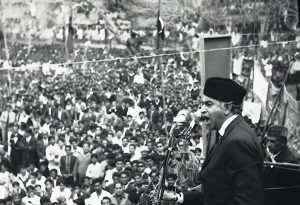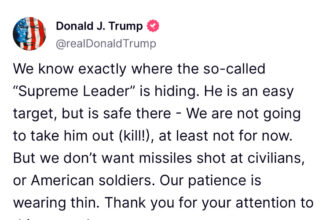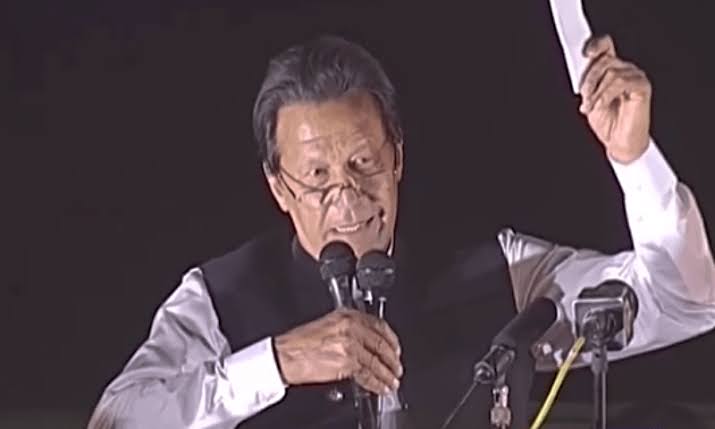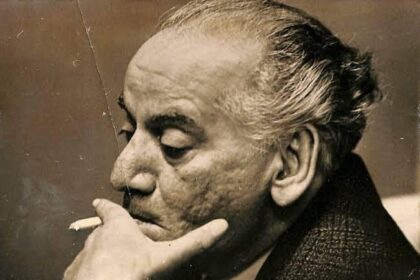He was still recovering from a political hangover, and he knew he needed to hold onto power desperately. To keep his government in place, he employed nearly every tactic at his disposal. While speaking at a political rally in Islamabad on March 27, 2022, Khan pulled a white paper out of his pocket and made a bold accusation, claiming that the United States was trying to overthrow him. This “cipher controversy” quickly became the most popular topic of discussion across the nation. People had little understanding of what the cipher was or why it mattered, but they all agreed that their leader was fighting for their freedom and seemed to be on the right track.
What Is a Cipher?
Diplomatic missions overseas use ciphers to communicate with their governments; these missions send coded messages to their respective governments. Those who are interested in international relations and politics understand that this is common. Imran Khan used this narrative in his political jalsas to shape public opinion; the consequences can still be seen today. He and his party continued to inform the public about U.S. involvement because Khan had met with Russian President Vladimir Putin and was opposed to Western influence.
The Khan narrative was riddled with contradictions, but people were blinded by his cult. Throughout all of this, Khan maintained contact with the military establishment through backdoor talks, and, interestingly, he dissolved the Punjab and KP assemblies on the advice of Gen Bajwa, whom he claimed played a role in his removal from power.
The May 9th Incident
Then came May 9th. Imran Khan was arrested, and his supporters stormed buildings, particularly military installations and cantonments around the country. The burning of the Corps Commander’s house in the Lahore cantonment marked a watershed moment. The majority of people were celebrating, with many tweeting pictures of the burned house with the caption Revolution!
The revolution, like most other so-called revolutions in this country, was short-lived. What happened after May 9th is history—the PTI disbanded, his leadership nearly abandoned the party, and some were jailed.
Who was the hardest hit? Ordinary people. The man who was the sole breadwinner for his family suffered along with his family.
Who died? The Pakistani citizen, whose life was unimportant to the law enforcement agencies or the leader who forced them to come out of their home.
What happened to the leader? He is still in jail with a state-of-the-art legal team at his disposal.

Khan’s Letters to the Army Chief
Recently, Khan wrote letters to the army chief, Gen Asim Munir. The purpose of these letters was to address national issues as well as the schism between the public and the military. Pakistan Army sources denied the existence of the first letter, but when Khan sent a second letter, he was informed that any such communication would be forwarded to Prime Minister Shahbaz Sharif.
Khan has changed his stance multiple times. Meanwhile, his supporters and workers abroad have lobbied for his party through the U.S. Congress—the same country they accused of meddling in Khan’s government.
This fascination with letters or ciphers in Pakistan’s political history dates back to Prime Minister Zulfikar Ali Bhutto, who once waved a letter in front of a crowd in Lahore and alleged that the U.S. was threatening him. The foreign intervention narrative has always been used in Pakistan’s political arena by both dictators and civilian rulers. These strategies are employed to appeal to the populace, especially the middle class, which is the backbone of any country’s economy. Politicians also use such tactics to distract people from real issues and to conceal their own shortcomings.

A Polarized Political Landscape
Over the past three years, Pakistan’s political environment has become increasingly polarized. The controversies surrounding Khan and his strong following have significantly contributed to this situation. There is little room for healthy dialogue in parliament and among supporters of different political parties. Trust in state institutions has reached its lowest levels.
While I do not advocate viewing these institutions as untouchable, citizens need to have trust and respect for them. Moreover, it is essential to recognize that there are no red lines when it comes to the state, and no single individual represents the state.
If Khan truly wants to improve the political situation in the country and is concerned about the state of affairs, he should talk to civilian leaders rather than the Chief of Army Staff.













Hahahhahae bold claims out of air